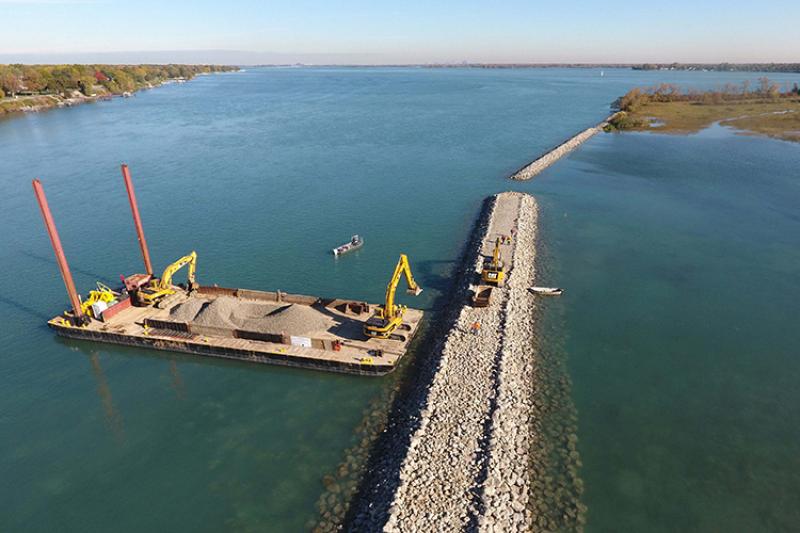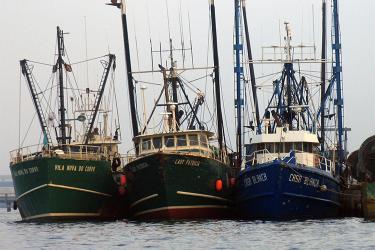To restore habitat and improve resilience in degraded Great Lakes ecosystems, NOAA Fisheries is recommending $8.9 million in Great Lakes Restoration Initiative funding to establish two new multi-year partnerships and to continue work on two ongoing, NOAA-funded projects.
This funding will benefit both communities and the environment: strengthening valuable fisheries and coastal resources, restoring the coastal wetlands that improve the quality of our water, providing recreational opportunities for public use and enjoyment, and supporting the resilience of Great Lake communities.
Specifically, recommended projects will restore habitats for Great Lakes species by opening river systems to fish passage, reconnecting rivers to their floodplains, and restoring and enhancing river, stream, and wetland habitats. Several recommended projects will contribute to ongoing restoration activities within the Great Lakes Areas of Concern—places where pollution has impacted ecosystems and the public’s ability to use natural resources.
Partners in these restoration efforts include nonprofits, local governments, and state agencies, all working to either bring years of restoration planning to execution or to carefully design new projects that will result in community and economic benefits.

We’re recommending funding for two new regional partnerships and continued funding for two ongoing restoration awards. These efforts include:
New Partnerships
-
Friends of the Detroit River (FDR) will partner with NOAA to carry out habitat restoration projects within three Areas of Concern: the Detroit River, Rouge River, and River Raisin. Projects will remove hardened shorelines, protect coastal wetlands, and replace invasive plant species. In the first year of the partnership, FDR will complete plans to restore Sugar Island and Hennepin Marsh in the Detroit River. ($919,575)
-
The Great Lakes Commission (GLC) will partner with NOAA on several habitat restoration projects that will benefit native fisheries. In the first year of the partnership, GLC and partners will carry out restoration activities in the Muskegon Lake, Maumee River, Cuyahoga River Areas of Concern, as well as at a priority coastal wetland restoration site in northeast Illinois connected to the Calumet River. ($7,150,103)
Continued Efforts
-
Huron Pines and partners will remove several high-priority barriers to fish migration across the northern region of Michigan’s lower peninsula. With this funding, Huron Pines will develop plans to reconnect over 50 stream miles by removing three fish passage barriers, restoring habitat for native brook trout and many other species within the Thunder Bay River watershed, one of Michigan’s highest-quality coldwater river systems. ($94,693)
-
The St. Clair-Detroit River System Initiative is a collaborative effort to implement a diverse range of restoration projects in the coastal counties of southeast Michigan. Funding will support construction for the Brandenburg Park Restoration Project, which will improve degraded coastal wetlands and restore high-quality habitat for native fish species. ($750,091)

As the largest freshwater system on earth, the Great Lakes are one of the most important natural resources in the world and serve as important economic resources, supporting industry, transportation, commercial and recreational fishing, and tourism.
NOAA’s Restoration Center, housed within the Office of Habitat Conservation, works in the Great Lakes to reduce threats from habitat degradation, oil spills and other pollution, overfishing, and invasive species to support the ecosystems and economies that rely on these valuable international resources. Since 2010, we have supported more than 70 projects through the Great Lakes Restoration Initiative, restoring more than 4,500 acres of habitat for fish and wildlife and opening up more than 500 miles of rivers and streams to fish migration.



